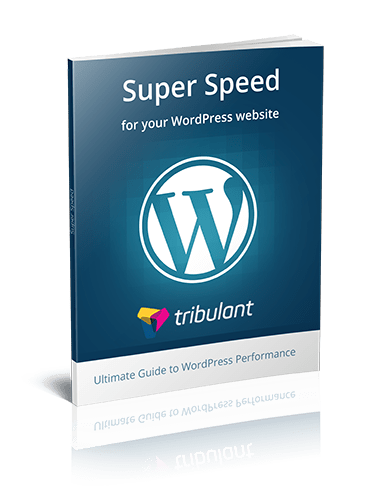
Common SEO Facts Vs Fiction

People are inherently curious. That character trait has been honed over tens of thousands of years of evolution until today it is probably one of the driving forces behind modern society, business, and technological innovation. So curious are we that we have created a vast depository of knowledge that we call the Internet. A simple search will reveal information that can make a real difference in our lives. Search results can help us find consumer goods, entertainment options, and a myriad of services that can provide us with a better quality of life. In fact, so popular is Google Search, the leading search engine, that it handles 8.5 billion searches each day.
With that many searches being performed only those organisations that provide exceptional content will be rewarded with a coveted listing on the first page of the Search Engine Results Pages (SERPs). That prime position matters. Research shows that in excess of 90% of those searching for information will click on a link on the first page of the results, and only very few will view subsequent pages.
The Google Search algorithm looks for clues that the page deserves its page one ranking – and it will rank the page on the quality of the content. That content must be optimized in order to attract the attention of the algorithm and motivate a high ranking, and one of the tools that experts in SEO use to ensure that this happens is Search Engine Optimisation or ‘SEO.’
More About SEO
SEO content is multifaceted. It includes what are called ‘meta-tags’, including the all-important Title Tags that show up as a clickable headline in the SERPs, brand names in content, phrases related to the search subject that must appear in page copy (including blogs), meta description tags that describe what is on the page and appear on SERPs, heading tags and alt image tags (search algorithms don’t actually ‘see’ images, they rely on SEO tags to provide them with information. These are only a few of the components of modern SEO practice.
The practice of SEO has been around since the mid-1990s and in the early days those searching for information had a number of search engines to choose from, including AltaVista, Excite, Ask Jeeves, Infoseek, Lycos, and Yahoo. Today the Gorilla in the Sandpit of Search is without a doubt Google Search.
Facts vs Fiction
With such a long history and the continued evolution of Search Engine Optimisation it is no wonder that there are some misconceptions about its use. Sorting common SEO facts from fiction can prove a challenge. However, clarification is essential for businesses that want to make use of the unrivaled marketing and communication potential of the Internet – and Search Engines. Those in search of insight into the current state of SEO might want to note the following.
1. Google will Penalise Duplicate Content
The programmers at Google are well aware that duplicate content is simply unavoidable. The Google algorithm attempts to sort the wheat from the chaff by excluding content in the Search Engine Results that is clearly a repeat of that found on other pages. The algorithm applies a number of strategies in order to identify quality content that is relevant to those searching. Many years ago Google gave advice to web page designers and content providers – ‘make sure that the content ‘adds value’ to the visitor experience.’ That advice still holds true. SEO professionals have a variety of strategies to ensure that the Search Engine result leads the searcher to the right page on a website. In short, Google does not ‘penalise’ duplicate content, unless the SEO practitioner is taking shortcuts.
2. Google Updates can Result in Algorithmic Penalties
Google updates its algorithm on a regular basis, but any changes to the quality of that algorithm will not result in a lower SERP ranking. Google is simply not in the business of punishing those who are designing SEO-optimised pages for its Search Engine. Changes to the algorithm may result in a lower ranking, but then, a professional SEO practitioner will know what changes are coming and make allowances for them.
3. There’s a Delay Before a Site is Properly Ranked
This may have an element of truth to it. It may take some time for the Google algorithm to properly analyse where in the Internet ecosystem a particular site belongs – and just how good it is in terms of SEO practice in relation to the desired user experience and the experience provided by the competition. However, it is worth noting that the jury is certainly still out on this question. Some SEO experts maintain that there is a delay, while others say that it is simply a matter of perception. According to Google social media posts – this is not the case.
4. PPC Advertising Helps Elevate Ranking
This one can be debunked fairly easily. Some maintain that it makes sense for Google to reward websites that feature pay-per-click advertising (PPC), after all, it is an enormous source of revenue for them. The fact of the matter is that it is simply not true. There are two algorithms at work on sites that feature PPC advertising. There’s an algorithm that ranks the results of organic search (the queries for information that are entered into the Search Engine) and another algorithm for determining PPC ad placement.
It is true that rolling out a paid advertising campaign can benefit a business (or other) site, but Google is not gaming the system, and PPC advertising is not going to affect your ranking on the Search Engine Results Pages.
5. The Age of a Domain Contributes to its Ranking
The age of the domain has nothing to do with its SERP ranking. people leap to conclusions. If a page has been around for a while and ranks well, then it must be because of its age. Google has addressed this mistaken belief on numerous occasions. The truth is both simple and self-evident. If a page has been around for a while the designers and content providers have had a long time to ensure that it conforms to everything required from the Search Engine algorithm, including SEO content. It’s also worth taking into account that a website that has been around for a decade has had time to gather an enormous number of backlinks – and that does affect ranking.
The above are only 5 of the myths that surround the practice of SEO, there are many more. Unfortunately, facts can become obscured when something becomes ‘common knowledge.’ Sorting the wheat from the chaff is important – and for any business or website that wants to rank highly on the SERPs, that will probably mean enlisting the help of an experienced SEO professional.
WordPress Plugins
Start selling products, sending newsletters, publishing ads, and more through your own WordPress website using our premium WordPress plugins.




No comments yet